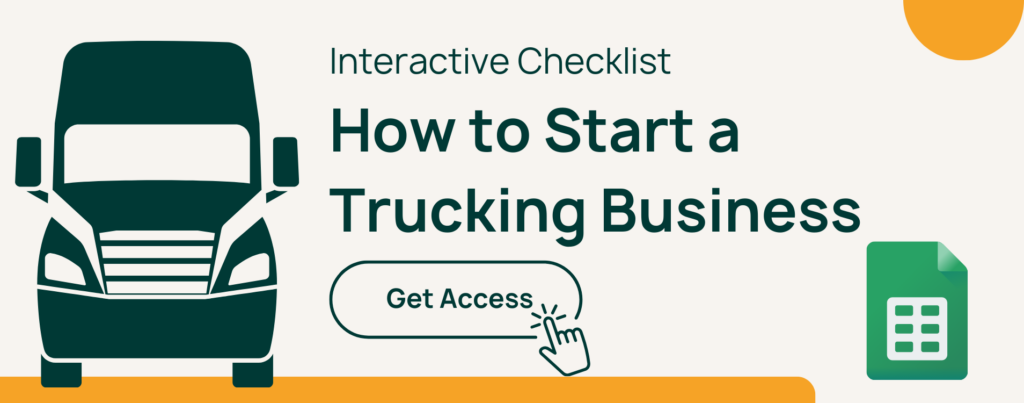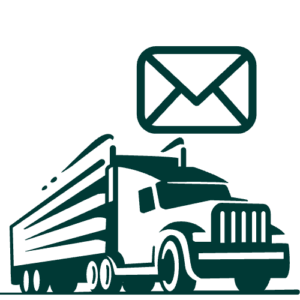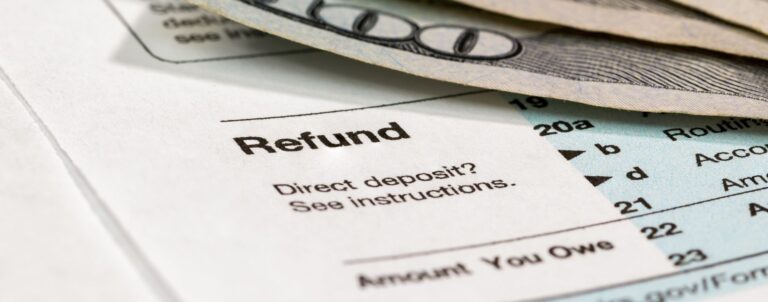How To Open A Bank Account For Your Trucking Company
Before you accept a single payment from a broker, shipper, carrier, or factoring company, it’s highly recommended you open a business bank account for your new trucking business. This is an important step in setting up your company, whose finances should be separate from the company owner’s personal accounts, even if they’re the only person working on the business.
In this article, we’ll discuss why you should have a business bank account, the types of bank accounts available, how to set up an account for your company, as well as what to look out for in a bank.
Subscribe to our YouTube channel for more videos!
Everything You Need To Know About IFTA – bobtail
The Importance Of Banking As A Business
Every trucker running their own truck, whether it’s leased under another carrier’s authority or their own authority, should have a business bank account. Even if you’re operating as a sole proprietor (and we don’t recommend that—read this article to learn why), your business should have its own finances. Why? Let’s count the reasons:
- Limited Personal Liability
Like separating your business entity from your personal life with an LLC or corporation, a business bank account offers limited personal liability when it comes to finances. That means that if the business incurs debt, the business identity is responsible for paying it back, not the owners. - Professionalism
Receiving payments via wire transfer or credit card to a business account automatically makes your business more professional. Transferring money to a personal account for a business transaction outside of making payroll is uncommon and can even look suspicious. - Business Credit
Just like you need to build personal credit to access loans or a credit card, so can your business. This is especially important for emergency purchases or investments for growth. Need a line of credit to make it through the next month? Or maybe you’re ready to buy your next truck and get into the flatbed business? Both are much easier if your company has a good credit history. - Separating Personal And Business Expenses
Ever heard the adage, “it’s just business, nothing personal!” Well, this is an example of where that actually holds true. While you may be using your personal savings to start the business, once it’s up and running, your business should have money of its own to save, spend, and invest. Things can get really messy when mortgage or car payments get mixed with large fuel expenses, especially if you’re sharing expenses with other family members. Save yourself the headache by separating those accounts. - Making Tax Season Easier
Having all your tax-deductible business expenses registered in separate accounts will make tax season a lot less hectic. - Room For Growth
It might just be you managing your company’s finances right now, but where do you want to be in 2 years? 5 years? 10 years? As you grow, you may want to hire an accountant or bookkeeper to help you with payroll, collections, and taxes. Having a business bank account allows you to give access to your eventual employees so you can focus on the parts of the business that need your attention the most.

What type of account should I open?
Every bank has its own account types for businesses, but generally, they fall into these categories: checking, savings, credit cards, and merchant accounts.
- Checking accounts allow you access to ATMs and a debit card you can use to make payments. They are likely to carry account and incidental fees.
- Savings accounts are best for long-term savings for things like your emergency fund and new equipment. These accounts require a minimum balance to earn interest.
- Making purchases and payments on a business credit card is good for building your company’s credit.
Finally, merchant accounts allow your company to accept payments via debit and credit cards. They often come with bundled services, transaction fees, and other fees. This type of account is only necessary if you want to accept payment via card, which is not the industry norm.
We recommend opening a checking and savings account at the very least. Credit cards are beneficial for building credit, as long as you’re confident in your ability to control spending and pay the balance every month on time. Merchant accounts are really only necessary if you plan to accept payments via cards, which is not the industry norm.
How To Open A Business Bank Account
Requirements
While every bank has its own way of doing business, these are the general requirements for opening a business bank account:
- Your photo ID, like a passport or a driver’s license (some banks require two)
- Personal mailing address and contact information
- Date of birth and social security number of every owner with 25% or more of the business
- Entity type or legal structure like LLC, corporation, sole proprietor, partnership, etc. (Read this article for more information on company legal structures)
- Opening deposit (check with the bank to see how much you need for your initial deposit)
- Employer Identification Number (EIN), the company’s federal tax ID
- Company formation documents, like articles of incorporation, corporate charter, or corporate resolution, whichever is most relevant to your legal structure.
- Ownership agreements if there are multiple owners.
- Business license
- DBA (Doing Business As) certificate if your business’s legal name is different than the name you use publicly.
What to consider when shopping for a bank
Like any service in the trucking industry, (insurance, factoring, repair shops, etc.), different banks will have different offerings and advantages. Here are the considerations to keep in mind when shopping around for a bank:
- Introductory offers: some banks will have special offers like a cash reward for opening a business bank account.
- Interest rates: comparing interest rates on both savings and credit cards can help you make the best choice.
- Early termination fees: if you’re not happy with your bank and want to move, you should have the freedom to do so, but some banks’ user policies charge a fee for leaving within a certain amount of time.
- Minimum account balance fees: for checking and savings accounts, there is often a minimum balance you need to maintain to avoid additional fees. Make sure you know what this amount is and if that will work for your business.
- ATM access, withdrawal, and deposits: the availability of ATMs around the country is particularly important for OTR drivers. Make sure, wherever you are, you can get access to your account to make withdrawals and deposits.
- Wiring, transfer, and payment capabilities: as a small business owner, its important to be able to make payments and transfers quickly and easily.
- Online and mobile banking: you’ll likely need to make transactions while you’re on the road away from your home office. Having a highly-rated mobile app can be really helpful.
- Bill pay, invoicing, integrations with other tools: there is a lot more to banking than transfers and credit cards. The bank you choose should make doing business easier by allowing you to program automatic payments, create invoices, and integrate with the tools you already use.
- Customer service: sometimes things don’t go as planned and you’ll need help from your bank to resolve problems. A bank that allows you to contact them through different channels like text, phone, email, and chat will give you the flexibility to resolve issues quickly no matter where you are.
- Branch access: many truckers prefer to bank with a large national bank that has branches all over the country. This way, they have a better chance of being close to a real human that can help with their banking needs.
Pro Tip: If you’re OTR, make sure your bank knows it and won’t freeze your cards when you spend all over your route or making large fuel purchases. You may need to remind them periodically – we recommend every six months.
Best Banks For Your Trucking Business
Every bank and credit union will have standard savings, checking, and credit card accounts. However, some are better suited for a trucker’s lifestyle than others. Some financial institutions even have special offers just for truckers. Here are some institutions to look into:
TAB’s mobile banking and bill pay features are highly rated. They also offer a 1.75% rebate on fuel purchases.
Axos is the oldest online bank and they offer free remote deposits as well as ATM fee reimbursement and phone support. This is a great option if you’re comfortable banking completely online.
Chase is one of the country’s largest banks. With 16,000 ATMs and nearly 5,000 branches, you’re sure to have banking services available to you no matter where you are in the country. They also offer insurance options for commercial trucking.
Bank of America is another one of the country’s largest financial institutions with 16,000 ATMs and 4,000 branches. Their equipment financing loans are also very popular in the trucking industry, as well as their insurance options.

Article By
Keep Learning







